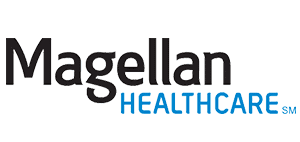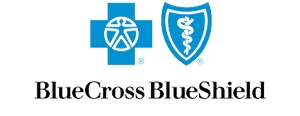Drug addiction is a major public health challenge, affecting millions worldwide. From cities to rural areas, it impacts people from all walks of life. Often starting as curiosity or a search for relief, addiction can quickly become a harmful cycle, affecting the mind, body, and spirit.
Recognizing the signs of addiction is crucial. These include secrecy, social withdrawal, weight loss, injuries, mood swings, or irritability. The risk of overdose highlights the risk of drug use disorders. Exploring the signs of drug abuse, dependence, overdose risks, and effective treatments can help you understand the serious nature of drug addiction.
What Is A Drug Use Disorder?
Drug use disorders, also known as drug addiction, encompass a wide range of substances with the potential for abuse, including opioids, marijuana, stimulants, hallucinogens, and inhalants. Each of these drugs can trigger a variety of harmful physical, mental, and emotional side effects. Regardless of the type, all addictive substances share the capacity to lead to dependence and eventual addiction.
Many individuals who use drugs often believe they are in control of their habits. However, this sense of control frequently unravels as drug use escalates. Over time, casual use can develop into full-blown addiction, driven by an uncontrollable compulsion to continue using despite harmful consequences. As addiction takes hold, priorities shift, and individuals often place the pursuit of their next high above their health, careers, and relationships.
The impact of drug abuse extends far beyond personal priorities. It can severely harm physical health, increasing the risk of heart attacks, strokes, and organ damage. Additionally, it can cause significant short- and long-term mental and behavioral changes, eroding a person’s quality of life. Beyond the individual, drug abuse often damages relationships, creating a ripple effect of harm that touches everyone involved.
Drug Addictions We Treat
Drug addiction can come in many forms, from recreational drug use to addiction to prescription medications. It can also be a result of mental health issues, such as depression and anxiety. No matter what form it takes, drug addiction can have serious consequences and should not be taken lightly. It can be difficult to recognize the signs of addiction in yourself or a loved one, but it is important to get help if needed.
Opiates and Opioids
Opioids are a class of drugs used to manage moderate to severe pain by targeting opioid receptors in the brain, effectively reducing discomfort. While they offer significant relief for individuals with chronic pain, opioids come with a high risk of abuse and addiction.
This drug category includes natural opiates like morphine and codeine, derived from opium, as well as synthetic opioids such as heroin and fentanyl. Beyond pain relief, some individuals use opioids to cope with anxiety, depression, or to experience euphoria. However, abuse can quickly lead to dependency and addiction.
Long-term opioid use carries serious health risks, including organ damage, weakened immunity, cognitive impairment, and, in severe cases, fatal overdoses. Knowing the dangers of opioids is essential to prevent misuse and encourage safe, responsible approaches to pain management.
Stimulants
Prescription stimulants are commonly used to treat conditions like attention-deficit hyperactivity disorder (ADHD) and narcolepsy. These medications work by stimulating the central nervous system, improving focus, alertness, and energy levels. While highly effective for managing these disorders, the misuse of prescription stimulants poses serious health risks.
Illicit stimulants, such as methamphetamine and cocaine, present even greater dangers. Their abuse can lead to addiction and severe health issues, including agitation, paranoia, rapid heart rate, seizures, strokes, and, in extreme cases, sudden death.
Despite the risks, stimulants are frequently misused in attempts to lose weight, boost energy, or enhance concentration. This highlights the need for more awareness of the potential harm associated with stimulant misuse.
Sedatives
Sedatives, such as benzodiazepines and barbiturates, can provide calming and sleep-inducing effects. For this reason, sedatives are often used to treat anxiety, panic, insomnia, and seizure disorders. It’s important for individuals using sedatives to closely follow their doctor’s instructions and not use them in any way not prescribed.
Long-term use of sedatives can lead to dependence and withdrawal symptoms when discontinued. If abused recreationally or in larger doses than prescribed, sedatives can lead to dangerous and potentially life-threatening consequences such as overdose.
Hallucinogens
Hallucinogens are a powerful class of drugs that impact the mind, altering perception, mood, and consciousness. They can evoke a wide range of effects, including vivid hallucinations, distorted reality, altered states of awareness, and intense psychological experiences.
While the effects can be intense and sometimes sought after, the use of hallucinogens carries significant risks. Prolonged use or overdose can lead to severe consequences, such as psychosis, paranoia, and persistent hallucinations. In some cases, physical complications like seizures or other medical emergencies may also occur.
Common Types of Drug Addiction
Our medical and behavioral teams are well-versed in treating all types of substance abuse safely and effectively. Some addictions we frequently see at our addiction centers include:
Opioids (Prescription Painkillers)
Some people don’t realize they’re addicted to painkillers until it’s too late. They may have been prescribed the drugs for an injury, then find that after the healing process, they can’t get off the pills. One of the main reasons opioids are so addictive is because they alter your brain chemistry. They create endorphins while numbing pain, and the result is that the body feels good. Over time, the brain has a difficult time producing endorphins naturally, which may make you want to take more opioids for the continued effect. If you have a predisposition to addiction or a co-occurring mental health disorder, opioids can feel especially soothing, increasing your risk for abusing them.
If you’re taking opioid prescription medications, it’s important to follow the instructions. Always consult your doctor before changing your dosage. If you think you’re becoming addicted to painkillers and may need drug addiction treatment, tell your doctor. They can diagnose you with a medical assessment. Signs that you’re addicted to opioids include:
- Being unable to control the urge to use them because of cravings
- Behavior changes
- Trying to obtain more from your doctor or going to other doctors seeking opioid prescriptions
- Having withdrawal symptoms between uses
Many people can use painkillers and not become addicted to them, though using them for more than 30 days may make you dependent. If you have an addictive personality or trouble with other drugs in the past, always tell your doctor and they will adjust accordingly.
Heroin
Heroin addiction happens swiftly. It’s intense, and difficult to kick. Heroin changes your brain chemistry quickly, paving the way for physical dependency on the drug. You need increasing amounts of heroin to get the same effects and often just to prevent heroin withdrawal symptoms.
Withdrawal symptoms can be particularly challenging between times of use, which fuels the addiction cycle. They can include fevers, the chills, “ghost” itching, nausea, and the inability to think correctly.
Most heroin users take it intravenously to get the quickest and most intense high. Other users smoke and snort it in powder form. Heroin slows the heart rate and blocks pain receptors. Many users claim that heroin provides a quick rush and then sends them into a dreamlike state, numb to stress and anxiety for hours. Mixing heroin with other drugs such as stimulants can be deadly.
Cocaine
A highly addictive drug, cocaine originated from indigenous people who used coca leaves to help treat toothaches, tiredness, and fatigue. For a short period of time around the turn of the 19th century, cocaine was legal in the United States. It was used as a medicine and was an active ingredient in Coca-Cola. Today, cocaine is illegal in the United States. It’s processed from coca leaves grown mainly in Columbia, Bolivia, and Peru. The majority of illegal cocaine is purchased by the United States and distributed on the Eastern Seaboard and Mexican border to California.
Cocaine addiction can have devastating consequences on your life and drug addiction treatment can turn this around. It’s usually snorted, smoked, or used intravenously. The drug has dangerous short and long-term health effects — from destroying your nasal cavity and raising your blood pressure to heart attack and overdose. Cocaine affects you for a relatively short time, which feeds the cycle to use more and develop a dependence.
Marijuana
Some people disagree that marijuana can be addictive, but you can actually experience withdrawal symptoms because of dependency. Heavy users may have mood shifts such as:
- Increased irritability
- Cravings
- Anxiety
- Stress
- Decreased appetite
- Restlessness
- Sleep disturbances
- General malaise
This can put you at risk for developing a cannabis use disorder and addiction as withdrawal symptoms increase. Some people who abuse marijuana find that they cannot stop even when it interferes with work or personal life. It’s possible to be dependent on marijuana, but not addicted.
Marijuana users who start in their teens have a higher possibility of drug dependence in their adult life. Some addiction professionals have referred to marijuana as a “gateway” drug. They’ve seen it lead to heavier drug or alcohol use. Marijuana is also often used alongside other drugs, such as stimulants to “come down” from the high in a more pleasing manner. This puts you at increased risk for addiction and the long-term effects of substance abuse. Leading a clean and sober lifestyle means abstaining from all drugs, including marijuana.
MDMA (Ecstasy/Molly)
MDMA is a synthetic drug that affects the body as a stimulant and hallucinogen. Originally developed to treat several psychological disorders, ecstasy became popular on the streets as a “club drug” when all-night dance raves found their way into mainstream culture. The drug provides feelings of euphoria, a desire to socialize, lowered inhibitions and sometimes mild to moderate hallucinations.
MDMA is sold in powder and pill form. It’s frequently cut with a myriad of other substances such as:
- Over-the-counter medications
- Crystal meth
- Ketamine
- Bath salts
- Cocaine
- Various household products
Cutting MDMA with these substances can be dangerous. Detoxing from MDMA also means that there are most likely a variety of toxins in your body as well. That’s why MDMA detoxes should be medically supervised.
Amphetamine and Methamphetamines
Amphetamines are stimulant drugs developed to help with attention-deficit/hyperactivity disorder (ADHD) and narcolepsy (sleep disorder). They’re classified as central nervous system (CNS) medications and though legal, they’re often abused. Some reasons why people abuse amphetamines are to lose weight, increase energy levels, and combine them with other drugs for a certain type of high. Amphetamines have made the news in the last couple of decades as a “study” drug for college students hoping to stay awake and cram for exams.
Methamphetamine (meth) is also a stimulant. It increases heart rate, blood pressure, speeds up metabolism, and gives the user euphoric feelings and more energy. The chemical structures of stimulants and methamphetamines are similar, though meth reaches the brain faster. This makes for a more intense and quicker high. The immediate sensation is one of the reasons why meth is so addictive.
Both meth and amphetamine addiction are dangerous and harmful. Side effects can leave permanent physical and psychological damage. Some of these include rotted teeth, permanent psychosis, and brain damage.
Need Help For Drug Addiction?
Our admissions team is available around the clock to help you or a loved one get the help you need.
Drug Addiction Treatment
At Vogue Recovery Center, we have decades of experience treating even the most complex substance use disorders. Whether you’ve been abusing one substance like heroin or alcohol, or your addiction involves poly drug use, meaning you’re abusing a mix of substances, we have the expertise to help.
Our drug addiction treatment programs address the root causes of substance abuse, not just the symptoms of drug and alcohol use. These underlying issues often include:
- Co-occurring disorders / dual diagnosis
- Trauma and PTSD
- Grief and loss
- Dysfunctional attachment styles
- Low self-worth
Our medical team will safely detox you from drugs and alcohol. Once you’ve eliminated substances from your system, we’ll create a personalized drug addiction treatment plan for you that’s based on your unique needs, experiences, and preferences. This may include traditional substance abuse treatments like cognitive behavioral therapy and dialectical behavior therapy, as well as holistic approaches such as art therapy and yoga. Our addiction recovery approach addresses the whole person, healing the physical, emotional, and spiritual wounds of substance abuse.

Why Drug Addiction Treatment Is Important
No matter what substance you’re abusing, quitting is not just a matter of willpower. Addiction is a disease that requires medical and behavioral interventions, just like any other health condition. When you abuse substances, your body develops a dependence on them. This is what causes withdrawal when you quit using drugs and alcohol. It’s important that detox and withdrawal take place under the care of medical professionals who can ease discomfort and reduce cravings, but more importantly keep you safe. With some drugs and under certain circumstances, withdrawal can be dangerous, even deadly.
Medical detox is just the first step in sobriety. Alcohol and drug addiction treatment is the next one. Without understanding the reasons why you abuse substances and learning healthier ways to cope without drinking or using drugs, relapse is imminent. In a professional treatment program, addiction experts help you identify your triggers, begin healing from them, and acquire skills and practices that prevent relapse. You’ll receive treatment for underlying mental health issues that fuel your alcohol or drug abuse and participate in a range of behavioral therapy approaches.
Does Insurance Cover Drug Addiction Treatment?
Most insurance plans provide full or partial coverage for drug rehab. In fact, laws require most insurance providers to treat drug rehab coverage the same as other medical conditions. Some policies cover detox and outpatient programs, while others extend to inpatient rehab centers. At the very least, your insurance should offer benefits that apply to counseling and behavioral therapy. To understand your specific coverage for opioid addiction treatment, simply contact our admissions team. We’ll work directly with your insurance provider to clarify what’s covered and any out-of-pocket expenses.
Curious if your insurance covers drug addiction treatment? Complete our free, secure insurance verification form or give us a call. Our team is here to guide you through your insurance benefits and coverage with ease. At Vogue Recovery Center, we’ve supported countless individuals in overcoming substance use disorders. Let us help you take the first step toward a healthier, brighter future.
Ready to Get Help?
We’re here 24/7. If you or a loved one is struggling, call us and we’ll figure it out together. We offer evidence-based alcohol and drug addiction treatment that is engaging and motivating. Our treatment centers are home-like and staff and fellow clients are welcoming, friendly, and truly care about you and your recovery. We will meet you where you’re at on your recovery journey with several types of treatment options that include:
Life is better in recovery. Call us today. Our admissions team is available to discuss drug addiction treatment options with you. We understand that making the decision to seek help can be difficult, but we are here to support and guide you through your recovery journey.
- https://www.drugabuse.gov/publications/drugfacts/cocaine
- https://www.drugabuse.gov/publications/drugfacts/heroin
- https://nida.nih.gov/publications/drugfacts/prescription-opioids
- https://www.drugabuse.gov/publications/drugfacts/marijuana
- https://www.drugabuse.gov/publications/drugfacts/mdma-ecstasymolly
- https://www.drugabuse.gov/drug-topics/methamphetamine








